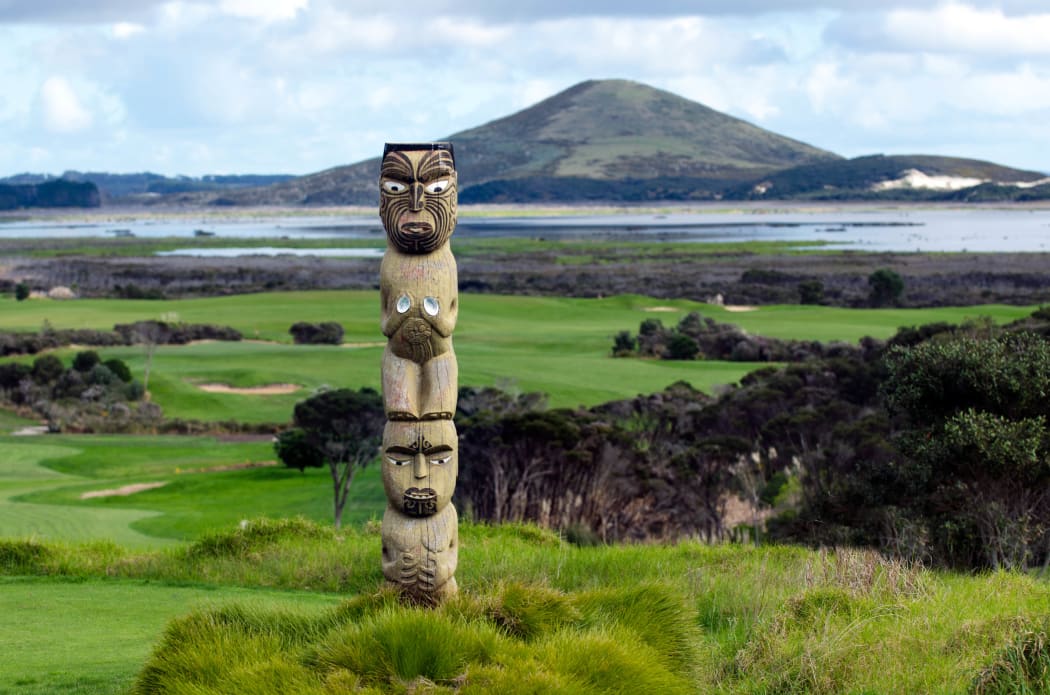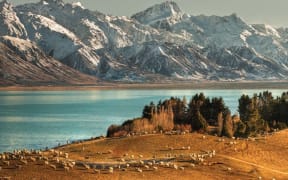New Zealand still has a long way to go to properly value Māori culture and language, tourism operators say.

Rangiputa mountain in Karikari Peninsula. Photo: 123RF
Cultural tourism has increased dramatically over the past few years with more Māori businesses and experiences offered around the country.
But there are concerns some may be focused more on profits than authenticity.
Napier Māori Tours owner and lead host Hinewai Hawaikirangi said understanding of culture and te reo Māori had improved but the work was far from over.
"We are very much at the forefront of cultural integration but in saying that there's still a long way to come in terms of all facets of society, all facets of the tourism industry to have a real respect and value of Māori culture and language."
Her company shares the stories of her ancestors and the area, while gathering food using traditional practices.
Tourism operators would often come to her to find out the stories so they could tell them to their guests, she said.
It started with learning the right way to speak the language, Ms Hawaikirangi said.
"Because wherever you go around the world ... the first thing you can do to respect that culture is to have patience, but also that intention to learn the pronunciation of their language."
Ngāi Tahu Tourism board director Tahu Pōtiki said it was a delicate balance between sharing authentic experiences and making a profit, and some businesses were not getting it right.
"You can see that people have tried to acquire components of Māori knowledge or performance to enhance their particular products, often with no connection to the people of the area, no genuine background or tribal history."
Collaborating with iwi and elders was a way of making sure their stories and customs were genuine, Mr Pōtiki said.
Ms Hawaikirangi started her business two years, saying it was extremely hard to set up but the rewards outweighed the cost.
Telling her ancestors' stories, showing the ways they lived off the land and sharing her knowledge with visitors was a way for her to connect with her heritage every day, she said.
"It is absolutely vital to incorporate our culture, that's what makes us unique ... that must be one of the forefront, not just the drawcard, but at the forefront of how we engage with our visitor."
Ms Hawaikirangi encouraged more Māori to consider the value of sharing their heritage with visitors.
Spanning 70 hectares of Te Whakarewarewa Geothermal Valley near Rotorua is Te Puia, a centre for Māori culture, geysers, bubbling mud pools and Kiwi.
Sales manager Sean Marsh said some of their staff were 3rd, 4th or 5th generation guides, who loved sharing their culture with visitors.
"They feel that it's helped not only preserve, but keep those stories ... those traditions and those practices alive because they can earn a living maintaining those practices and sharing those stories," Mr Marsh said.
Rotorua's culture will be on show during the country's largest annual tourism and trade event TRENZ this week.
Destination Rotorua's Michelle Templer said she was not surprised to see more visitors seeking to learn about culture.
It was encouraging to see how the government's draft tourism strategy looks to ensure whānau, iwi and hapū benefit from tourism, she said.
"Could more be done? Absolutely. Because I think it is very much going to be a driver, an enabler of growth in the tourism industry."
More than 40 Māori cultural tourism operators will sharing their stories during the four-day tourism expo.




